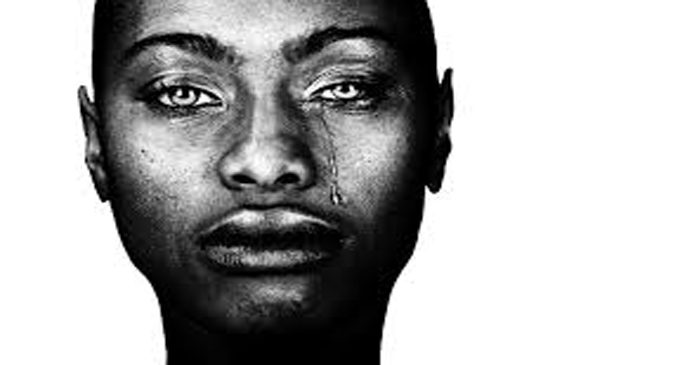COVID-19 crisis spawns another dangerous epidemic in NC: A spike in domestic violence

By Joe Killian, NC Policy Watch
It was nearly 4 a.m. and Jennifer had been pretending to sleep for two hours. She tried to ignore the sound of her own heartbeat, which pounded faster and harder than seemed possible, so she could hear her husband next to her on the bed.
Was he sleeping? Was he sound asleep?
When she was sure he was, she quietly slipped out of the bedroom and down the hall to retrieve the garbage bag she had hidden behind the washing machine that afternoon. She had packed it with three pairs of jeans, several shirts, a few days’ worth of socks and underwear — as much as she felt she could discreetly squirrel away while doing the laundry. She also hid her car key in the bag, detached from the ring of keys she wouldn’t need anymore — the apartment, the mailbox, her husband’s SUV. She didn’t want them to jingle as she made for the parking lot.
She was miles away, on the highway headed for a friend’s place in Charlotte, when she realized she was gripping her steering wheel so hard her hands were going numb. That made her laugh, for some reason, and suddenly she was sobbing. It went on that way — laughing and sobbing — for almost the entire hour’s drive.
When her friend opened the apartment door to let her in, her shocked look told Jennifer she looked even worse than she thought. She hadn’t looked in a mirror all week, but she could feel the swelling on the right side of her face. It was tender and hot all the time, which made it difficult to even pretend to sleep. Her friend hugged her and they cried together, and then Jennifer was laughing again.
“I guess the whole thing just seemed ridiculous,” she said in an interview with Policy Watch nearly a month after that night. “I mean, it wasn’t perfect. We fought sometimes, like most people. But the last weeks it was like it was a whole other level.
“He hit me, he shoved me, he pulled my hair, he took my phone away,” she said. “It was almost every day by the time I left. It wasn’t until we weren’t going to work, we were just in the house together all the time, I realized how bad it was. I realized he was going to kill me. And it just felt ridiculous it took all this to make me realize that.”
Jennifer isn’t alone. Not even close.
Police departments across the state are reporting an uptick in domestic violence calls. In Charlotte, domestic violence calls were up 17% last month over the same time last year. The High Point Police said their calls have increased 21%. For the Guilford County Sheriff’s Office, it’s 30%.
“Survivors in all parts of the state face tremendous barriers to seeking and receiving help,” said Sherry Honeycutt Everett, Legal and Policy Director for the North Carolina Coalition Against Domestic Violence. “We are hearing story after story of victims who are isolated at home in dangerous conditions, at a time when our intervention and response infrastructures are operating at drastically reduced capacity.
“We also know that background checks and handgun permits for firearm purchases have soared to historic highs in North Carolina in recent weeks,” Everett said. “Which means that there are survivors who are at home with abusive partners who are newly armed.”
A variety of factors are likely at work in the current surge of cases, said Dr. Kelly Graves, psychologist and co-founder of The Kellin Foundation, a Triad nonprofit that provides behavioral health services and victim advocacy. The foundation works with domestic violence victims through the Guilford County Family Justice Center, and runs the Greensboro Child Response Initiative, serving and advocating for victims of child abuse.
“With histories of violence, plus substance abuse, plus social isolation — you can create kind of a perfect storm of danger for people in their homes,” Graves said.
Jennifer’s husband had hit her before. Three or four times in the seven years since they were married, she said. His temper had always been bad when there was pressure about money or he’d had too much to drink. Those two went hand-in-hand, usually.
Their marriage went more smoothly when money was coming in. The couple would go out with friends to a nice dinner or down to the beach for a weekend getaway. He worked as a line cook in a steakhouse, sometimes picked up shifts bartending at another restaurant. She did hair and makeup at a salon. They were never rich, but they had enough.
“When we met I was 20 and he was 24 and we have never really been out of work since then,” Jennifer said. “People have to have hair cuts. They have to eat. If the car broke down or there was a big bill, we had to go to the dentist or something, we could pick up extra hours. Maybe things were slower than other times sometimes, but we’re hard workers and we could always work.”
All that changed this year as February turned into March and people started taking the coronavirus more seriously. Clients she had seen for years began to cancel appointments. Business slowed down at the restaurant. There were no extra shifts to pick up. Shifts were getting cut. Then the state banned sit-down dining. Her salon closed.
“It’s like, you don’t realize how quick you can go through what savings you have when there is nothing coming in, just zero,” she said. “The rent doesn’t stop. The bills don’t stop.”
Jennifer became cut off from her friends and family; because of the state’s stay-at-home order, she was trapped in her two-bedroom apartment that rapidly turned into a pressure cooker.
Navigating unemployment claims was frustrating and humiliating. Anxiety over every sniffle and cough was amplified by the worry over their future. Small squabbles became screaming matches. Screaming turned to shoving, slapping, throwing her to the ground. She had locked herself in the bathroom to cry for the second day in a row when she realized the virus had forced her to confront the abuse that had always existed in this relationship.
“I just felt stupid,” she said. “I just felt like, how did I not see this until I was locked at home with it like this? Was it always like this?”
“The toolbox we had to cope has disappeared.”
Many people don’t realize the statewide and local stay-at-home orders encourage people experiencing domestic violence to seek help if they need to, Graves said. The Family Justice Center is still taking walk-in clients. “We’re seeing more referrals and the referrals we’re seeing are more severe,” Graves said. “Our wait lists are substantial and we’re trying to figure out how to get people in the door and meet their needs.”
But many places where abuse is first detected — schools, local clinics, general practitioners’ offices — are shut down or encouraging people to postpone regular appointments to slow the spread of the coronavirus.
The result: long-running domestic violence may be getting worse and new cases are going undetected and unreported.
People’s daily lives have been upended in a way many have never experienced, Graves said. Parents are suddenly homeschooling their children. They are isolated from their friends and extended family. They are wrestling with unemployment as North Carolinians have filed more than 700,000 jobless claims in the last two months.
“And we’re all dealing with these things without many of the tools we have to cope,” Graves said. “We don’t have those little breaks — simple things like going to work, going to school, going shopping, seeing friends. The toolbox we had to cope has disappeared.”
For some now seeking help, the breaking point has been a long time coming.
Two weeks ago Nancy, a self-described “poster mom,” went from ignoring her phone on a long road trip to turning it off completely. Her husband had been calling for hours, sending a flurry of threatening text messages and leaving enraged voicemails. She didn’t have time to deal with them now. She was tucking their eight-year old son into a motel bed.
While her husband was at work that afternoon, she packed two bags, put her son in the car and drove for nearly four hours to the coast before pulling over to find a place to sleep.
The next day she would tell her parents she was in town, that she had left her husband and needed to stay with them for a while. She just hadn’t decided how she would tell them, exactly. She was in her early 40s — a homeowner, a mother, a member of the PTA. What would she say had happened?
“Then I thought … maybe I’ll just roll up my sleeves and show them the bruises on my arms,” she said.
In the 12 years of their marriage, she’d left her husband twice before — each time because of violence. But the separations never lasted long. She had always hid the problem from her family and closest friends, even from her son, as much as she could.
She had called the police before, as had neighbors when they heard the fighting. But she had never pressed charges. She didn’t want him to go to jail. She had stopped working when their son was born and her husband was the family breadwinner. She didn’t know how she’d get by if the family broke up.
“I told myself that I could deal with it,” she said. “He had never hit our son. I didn’t think he would ever do that. As long as that didn’t happen, I could deal with it.”
But two days earlier, he crossed that line. Their boy hadn’t been dealing well with the switch to homeschooling during the pandemic. He missed his friends, found it difficult to concentrate on schoolwork at home. He’d been a little loud and hyperactive in the evenings, when his father came home.
“He took him and grabbed his shoulders and slammed him up against a wall in the kitchen,” she said. “Right then I knew I was leaving.”
She should have left sooner, she said. She sees that now.
“If the roof of your house has got a hole, you can ignore it for a while,” she said. “Maybe it’s not smart to ignore it. But when there’s a storm, you can’t ignore it anymore. That problem gets urgent. That’s what this virus and all this shutdown is doing. It’s a storm that made me see the damage that was already there.”















